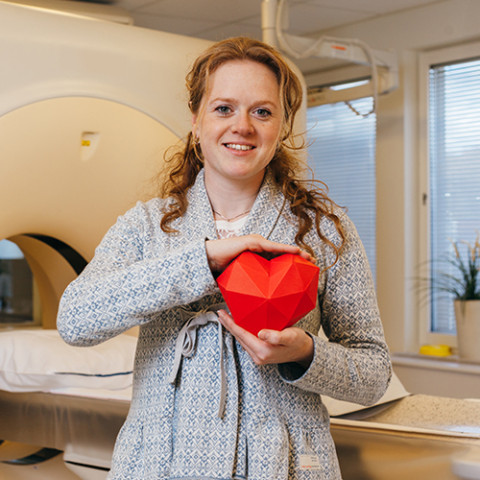Blog
28 January 2021
Covid-19: lessons from disaster psychology
People’s emotional reactions to disasters follow predictable patterns. The Covid-19 pandemic is no exception. And that helps us prepare for what’s coming. In addition to diagnostics and medical care, we also need to focus on mental health, post-Covid care – and lifestyle. All this can be done digitally.
Fear and uncertainty: the looming pre-disaster phase
In the first weeks of 2020, news from China started to raise alarm on a contagious new virus that resembled the deadly SARS (severe acute respiratory syndrome). At the time, it seemed possible to contain the first cases, but within a few weeks, the virus took hold and starting spreading. Italy was the first country in Europe to be severely hit. Then the impact phase kicked in.
Intense emotions: the impact phase
We moved from shock to panic and our initial confusion and disbelief were followed by a sharp focus on protecting ourselves and our families. We raided supermarkets, bought groceries, and stockpiled toilet paper.
Altruism: the heroic phase
Then came the heroic phase: standing ovations for healthcare workers, donations, community support and a feeling of "together strong against Covid-19".
Optimism: the honeymoon phase
Jokes, singalongs with the neighbours, virtual apéros with friends and family, the promise of a vaccine in the horizon, the summer break when at last we seemed to be getting ahead of the curve... This was the honeymoon phase.
Exhaustion: the disillusionment phase
Then the second wave kicked in. The vaccines took longer than expected. Vicious new variants turned up uninvited. The vaccination campaign, which was just getting going, ran into problems. This is where we are now.
We mourn the dead, demand faster vaccinations, and ask ourselves whether the virus will ever disappear. In this phase, people and companies are struggling, financially, mentally and physically. Because of loneliness, stress and depression – and because we live unhealthy lives. Smokers are smoking more, people put on weight, everyone exercises less, and the toll rises with every medical appointment missed. Regardless of occupation, beliefs or social class, it is a pretty hopeless time for many people. But it will pass. The plague, cholera, and the Spanish flu disappeared, and so will Covid-19.
Maybe this spring! By autumn? Sometime next year? Who knows. But at some point, disillusionment will give way to the next phase: recovery.
Recovery: the recovery phase
We will dust ourselves off, ask ourselves whether healthcare should be improved, make the changes. We will get ready for the parliamentary inquiries. We will prepare for the next pandemic. And slowly, we will forget.
Medical solutions for each phase
Each phase brings specific medical, diagnostic and psychological needs. In the impact and disillusionment phases, medical care and testing are essential. General practitioners, hospital, ICU and laboratory personnel are overstretched. Demand for PCR and serology tests remains high. Lots of attention and effort is rightly devoted to this.
In the disillusionment phase, it also comes down to resilience and mental toughness. Demand for psychological help increases. Meanwhile, many people are unable to fully recover from Covid-19. They remain tired, short of breath, or have other complaints. They too need help. Both the need for psychological care and aftercare will extend well into the reconstruction phase. Together with physical resistance and underlying conditions. Because they increase our chances of getting sick – and help determine the outcome if we do.
In the past months, politicians have spoken about "making 100% of the decisions with 50% of the knowledge." Indeed, there is still much we do not know. But the dynamics of disasters are clear and, on this basis, we know what the medical, diagnostic and psychological needs of tomorrow are. In addition to the necessary medical care and Covid-19 diagnostics, we must therefore now focus on mental health, post-corona care and lifestyle. This can be offered digitally, Covid-proof and, in many cases, evidence-based. Both preventive and curative. In disaster psychology, it is called "disaster preparedness". And it's not rocket science. It's just doing what we have to do and anticipating what we know will come. There is work to be done.
Authors: Maaike de Vries, PhD, strategic innovation consultant and Esther Talboom-Kamp, PhD, Chief Innovation Officer Unilabs and interim CEO Unilabs Netherlands.

